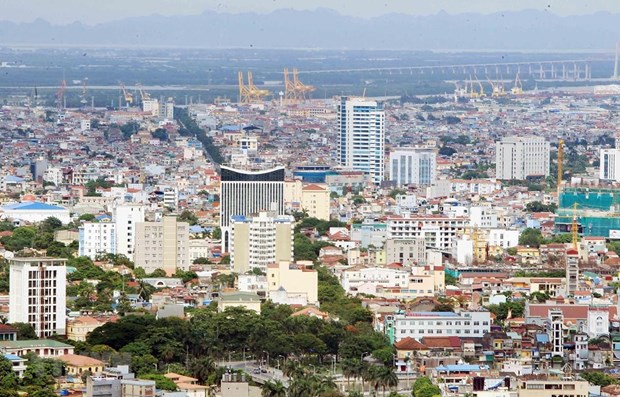
The northern key economic zone, comprising the capital city of Ha Noi, Hai Phong city, and the provinces of Quang Ninh, Hai Duong, Hung Yen, Vinh Phuc and Bac Ninh, is the political, economic, cultural and defence-security centre of the country.
The zone accounts for almost 32 percent of the national GDP and 35.52 percent of the combined GRDP of the four key economic zones. The seven localities contribute over 31 percent of the State budget and 32 percent of the national export revenue.
However, the zone’s sustainable development is facing several problems, particularly the uneven development levels among localities in the zone, and some localities’ dependence on large-scale FDI projects for State budget collection, among others.
Directive 25 outlines a number of measures to address the problems, the first of which is to build favourable, open and stable policies and mechanisms that suit the region’s situation.
Ministries are assigned specific tasks in reviewing and drafting laws and other legal documents on investment, corporates, planning, while People’s Committees of cities and provinces in the zone are asked to issue specific mechanisms to facilitate the development of several major businesses into corporations of regional and global importance, thus leading the way for firms in the zone.
Another measure is to promote connectivity among sectors and industries.
The Ministry of Planning and Investment is asked to build a programme supporting connectivity among small- and medium-sized enterprises according to regions.
The Ministry of Industry and Trade is assigned to coordinate with the Ministry of Agriculture and Rural Development to build linkages between distribution companies and agricultural producers, and develop a network of logistics centre in the region.
The Ministry of Construction must research and design a national urban and rural development master plan, propose mechanisms and solutions to develop social housing in urban areas and industrial parks, and for low-income earners.
The PM urges People’s Committees of cities, provinces in the zone to pay attention to linkages with each other and with localities outside the zone in attracting investment, mobilizing and distributing resources, and building socio-economic infrastructure, and protecting the environment and adapting to climate change.
He reminded the zone’s localities to improve the efficiency in using resources in socio-economic infrastructure and attract more investment in the form of public-private partnership, particularly into transport.


















